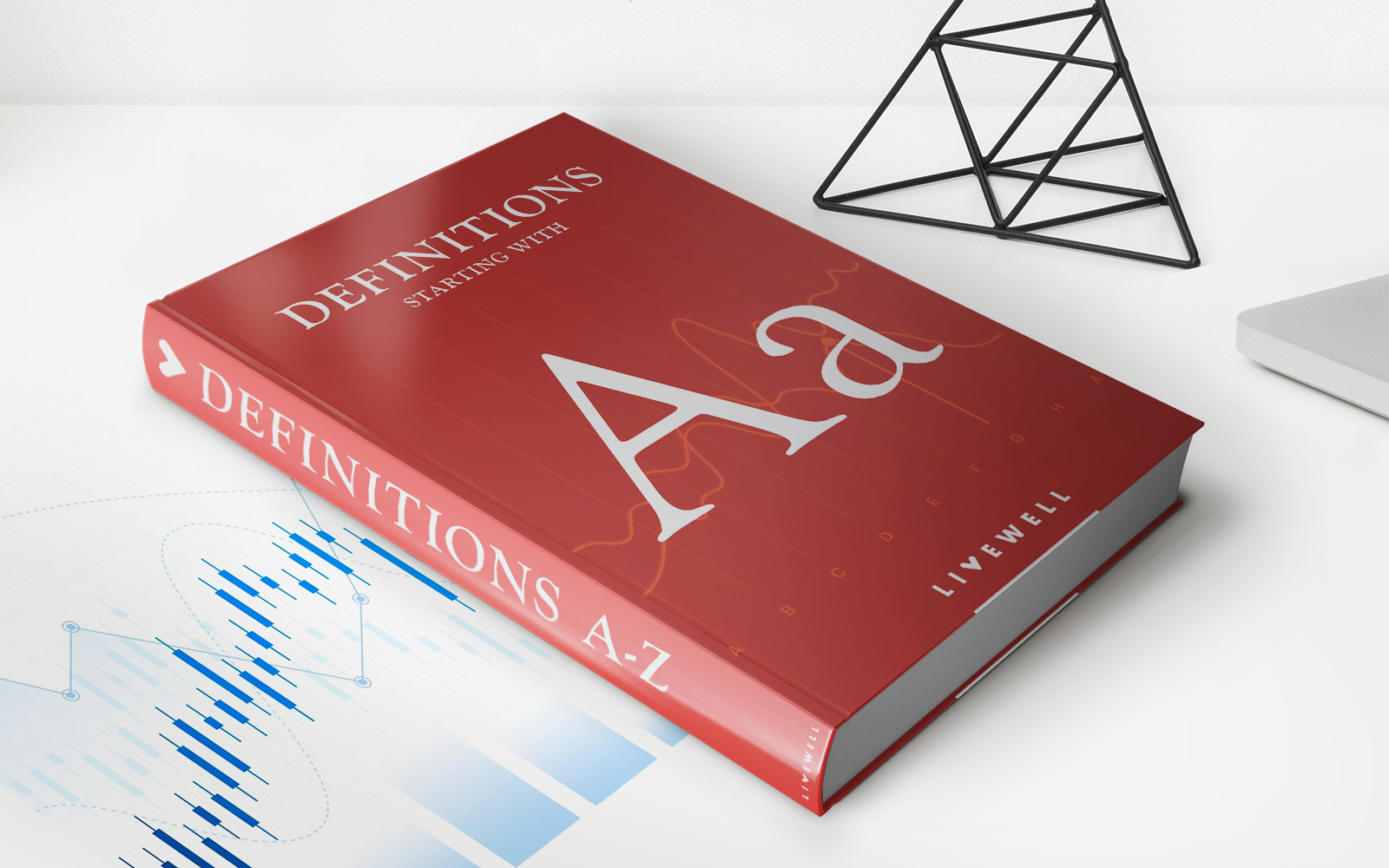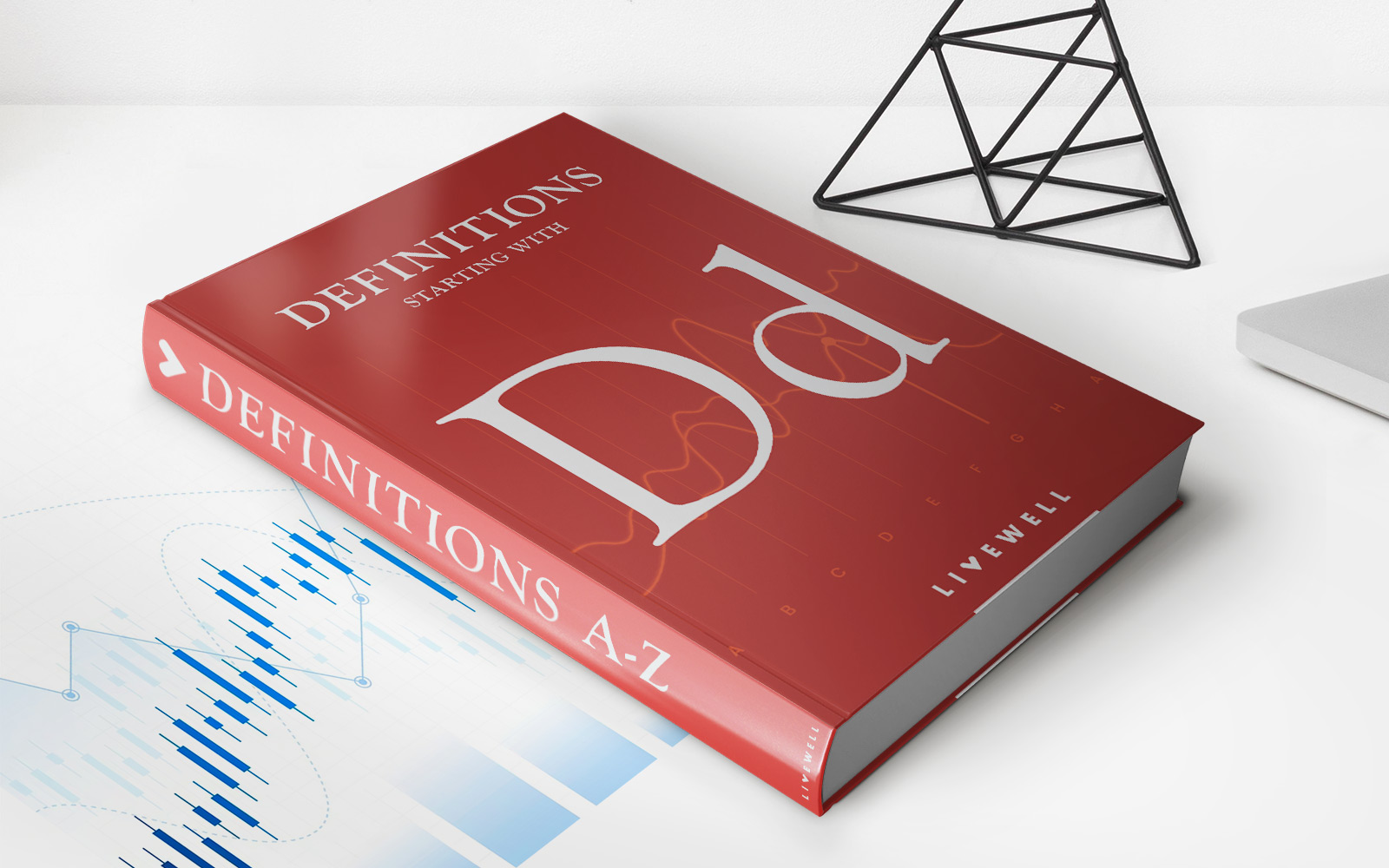Home>Finance>What Is The Difference Between Burial Insurance And Life Insurance?


Finance
What Is The Difference Between Burial Insurance And Life Insurance?
Published: October 15, 2023
Looking for the right insurance plan? Understand the contrast between burial and life insurance, and make an informed financial decision.
(Many of the links in this article redirect to a specific reviewed product. Your purchase of these products through affiliate links helps to generate commission for LiveWell, at no extra cost. Learn more)
Table of Contents
Introduction
When it comes to planning for the future and protecting your loved ones, insurance is an essential financial tool. Two common types of insurance that often get confused are burial insurance and life insurance. While both types of policies offer financial security, it’s important to understand the differences between them to make an informed decision.
Burial insurance, as the name suggests, is specifically designed to cover the expenses associated with a funeral and burial. It is a type of preneed insurance that ensures your final wishes are met without placing a financial burden on your family. On the other hand, life insurance is a broader form of coverage that provides a payout to your beneficiaries upon your death.
In this article, we will delve into the specifics of both burial insurance and life insurance and highlight the key differences between the two. By gaining a clear understanding of these distinctions, you will be better equipped to determine which type of insurance is most suitable for your needs.
Understanding Burial Insurance
Burial insurance, also known as funeral insurance or final expense insurance, is a type of insurance policy specifically designed to cover the costs associated with a funeral and burial. It provides a lump sum of money to cover expenses such as casket, funeral service, grave marker, burial plot, and other related costs.
One of the key features of burial insurance is that it typically offers coverage in smaller amounts compared to traditional life insurance policies. The death benefit of burial insurance is usually between $5,000 and $25,000, although it can vary depending on the insurance provider and the specific policy.
Another important aspect to consider is that burial insurance is generally easier to obtain compared to traditional life insurance. The application process is simpler, and it often requires minimal medical underwriting, which means you may not have to go through a detailed medical examination or answer complex health-related questions. This makes burial insurance a viable option for individuals who may have pre-existing health conditions or who are of advanced age.
In terms of premiums, burial insurance typically involves fixed premiums that do not increase over time. This can provide peace of mind knowing that your premiums will remain consistent, regardless of any changes in your health or age. However, it’s important to note that burial insurance premiums tend to be higher compared to traditional life insurance policies on a per-unit basis, considering the lower coverage amounts.
Additionally, burial insurance policies are often offered on a guaranteed issue basis, meaning that acceptance into the policy is guaranteed as long as you meet the age requirements, typically between 50 and 85 years old. This makes burial insurance an attractive option for individuals who may have difficulty obtaining traditional life insurance due to health issues.
Overall, burial insurance provides a financial safety net specifically tailored to cover funeral and burial expenses. It offers a sense of reassurance that your loved ones will not be burdened with the financial obligations associated with your final arrangements. However, it’s important to consider your overall financial needs and the coverage limitations of burial insurance before making a decision.
Understanding Life Insurance
Life insurance is a broader form of coverage that provides a payout, known as the death benefit, to your designated beneficiaries upon your death. It is designed to offer financial protection and income replacement to your loved ones in the event of your passing.
Unlike burial insurance, life insurance policies typically offer higher coverage amounts, ranging from hundreds of thousands of dollars to millions of dollars. The specific amount of coverage you can obtain depends on your financial needs, income, and general health.
There are different types of life insurance policies, the most common being term life insurance and whole life insurance. Term life insurance provides coverage for a specific period, generally ranging from 10 to 30 years, and pays out a death benefit if you pass away during the term. Whole life insurance, on the other hand, provides lifelong coverage and often builds cash value over time.
When it comes to premiums, life insurance policies can have different payment structures. Term life insurance typically involves lower premiums compared to whole life insurance. However, term life insurance premiums increase over time as you renew your policy at the end of each term. Whole life insurance, on the other hand, has higher premiums, but they remain level for the duration of the policy.
Life insurance policies often require more comprehensive underwriting, including a detailed medical examination and health questionnaire. This is because life insurance provides coverage for a longer period and higher benefit amounts, and insurance companies need to assess the risk associated with providing the policy.
Life insurance can serve various purposes depending on your needs. It can cover funeral expenses, provide income replacement to your beneficiaries, help pay off debts such as mortgages or student loans, and even be used for estate planning or business succession purposes. The flexibility and broader range of coverage options make life insurance a versatile financial tool.
It’s important to carefully consider your financial goals, current and future expenses, and the needs of your loved ones when selecting a life insurance policy. Consulting with a financial advisor or insurance professional can help you navigate the complexities and choose the right policy that aligns with your specific circumstances.
Differences in Coverage
One of the main differences between burial insurance and life insurance lies in the scope of coverage they offer. Burial insurance is specifically designed to cover the expenses associated with funeral and burial costs. It provides a lump sum of money to cover expenses such as caskets, funeral services, grave markers, burial plots, and other related expenses. The coverage is limited to these specific end-of-life expenses.
On the other hand, life insurance offers a broader coverage that extends beyond funeral and burial expenses. It provides a death benefit to your designated beneficiaries upon your passing, which can be used for a wide range of purposes. This can include income replacement for your family, paying off debts such as mortgages or student loans, funding education for your children, or even providing financial stability to your business.
The coverage amount for burial insurance is typically lower compared to life insurance. Burial insurance policies usually offer coverage amounts between $5,000 and $25,000, while life insurance policies can provide coverage amounts ranging from hundreds of thousands of dollars to millions of dollars. The higher coverage of life insurance allows for more comprehensive financial protection for your loved ones.
It is essential to carefully evaluate your financial needs and priorities when determining the level of coverage you require. If your main goal is to cover funeral and burial costs, burial insurance may be sufficient. However, if you have larger financial obligations and want to provide substantial financial support to your beneficiaries, life insurance may be a better option to consider.
Remember that the coverage limitations and terms of each policy will vary based on the specific insurance provider and the policy you choose. It’s crucial to thoroughly review the terms and conditions before making a decision to ensure the policy aligns with your needs and objectives.
Differences in Premiums
When comparing burial insurance and life insurance, another important factor to consider is the difference in premiums. Premiums are the regular payments you make to maintain your insurance coverage. Understanding the variations in premiums can help you determine the affordability and long-term sustainability of each type of insurance.
Burial insurance typically involves fixed premiums. This means that the premium amount remains consistent throughout the duration of the policy. Fixed premiums provide predictability and can be helpful for budgeting purposes. However, it is important to note that burial insurance premiums tend to be higher on a per-unit basis in comparison to life insurance. This is because burial insurance generally offers lower coverage amounts, and the premium rates are set accordingly.
In contrast, life insurance premiums can vary based on the type of policy you choose. Term life insurance policies typically have lower initial premiums compared to whole life insurance. However, term life insurance premiums often increase over time as you renew the policy at the end of each term. These increasing premiums can become more expensive as you get older, making long-term affordability a consideration.
Whole life insurance, on the other hand, typically has higher initial premiums compared to term life insurance. However, these premiums remain level for the duration of the policy. By paying a higher premium upfront, you have the advantage of having a consistent premium amount that does not increase over time. This can provide peace of mind, especially if cost predictability is a priority for you.
When deciding between burial insurance and life insurance, it’s crucial to assess your financial capabilities and the level of coverage you need. Consider your budget, income, and long-term financial goals. While burial insurance may offer fixed premiums, it is essential to assess whether you can afford the higher premium rates for the coverage amount provided. Life insurance premiums, on the other hand, require careful evaluation of the affordability and sustainability over the course of the policy term.
Remember, insurance premiums can vary based on factors such as your age, health condition, coverage amount, and the specific insurance provider you choose. It is recommended to consult with an insurance professional who can guide you in selecting the most suitable policy that fits your budget and coverage needs.
Differences in Eligibility
Eligibility requirements are another important aspect to consider when comparing burial insurance and life insurance. The eligibility criteria for each type of insurance can significantly differ, impacting your ability to obtain coverage.
In general, burial insurance tends to have more lenient eligibility requirements compared to life insurance. Burial insurance is often designed to be accessible to a wider range of individuals, including those who may have pre-existing health conditions or are of advanced age. Many burial insurance policies offer guaranteed acceptance, meaning that as long as you meet the age requirements, typically between 50 and 85 years old, you can secure coverage without undergoing a detailed medical examination or answering complex health-related questions.
On the other hand, life insurance policies, especially those with higher coverage amounts, typically involve more comprehensive underwriting. This can include a detailed medical examination, filling out a medical questionnaire, and providing information on your lifestyle, occupation, and other factors that can impact your insurability. Life insurance providers assess the level of risk they are taking on by insuring you, and eligibility criteria are often stricter as a result.
Age plays a significant role in eligibility for both burial insurance and life insurance. Burial insurance typically has an upper age limit for eligibility, often ranging from 85 to 90 years old, depending on the insurance provider. Once you exceed the specified age limit, burial insurance may no longer be available. In contrast, life insurance eligibility can vary more widely depending on the type of policy and the insurance provider. There are life insurance options available for individuals of all ages, from infants to seniors.
It is important to note that life insurance eligibility can also be influenced by factors such as your health history, lifestyle choices (such as smoking or engaging in risky hobbies), and occupation. Insurance providers may have specific medical or non-medical requirements that determine your insurability and the premium rates you will be offered.
When considering burial insurance or life insurance, it is essential to carefully review the eligibility requirements set by the insurance provider. Understanding the eligibility criteria will help you determine which type of insurance you are more likely to qualify for and ensure that you have the appropriate coverage based on your age, health, and other relevant factors.
Differences in Payouts
The differences in payouts between burial insurance and life insurance are significant and can impact the financial protection provided to your beneficiaries.
With burial insurance, the payout, also known as the death benefit, is typically a lump sum payment intended to cover the specific costs associated with a funeral and burial. The coverage amount for burial insurance is generally lower, ranging from $5,000 to $25,000, although this can vary depending on the policy and insurance provider. The designated beneficiaries receive the lump sum payout upon the insured individual’s passing, and they have the flexibility to allocate the funds towards funeral expenses as needed.
In contrast, life insurance offers a broader range of options for payout. The coverage amounts for life insurance policies can vary significantly, with policies offering hundreds of thousands of dollars to millions of dollars in coverage. The payout from a life insurance policy is typically not restricted to funeral expenses alone. Beneficiaries can use the proceeds from the death benefit as they see fit, whether it’s to replace lost income, pay off debts, fund education for children, or provide financial stability for the family.
Life insurance policies also provide more flexibility in terms of how the payout is distributed. Beneficiaries can often choose to receive the death benefit as a lump sum, which provides immediate access to the funds. Alternatively, they may opt for structured payouts, such as regular installments or annuity payments, to ensure a steady stream of income over an extended period.
It is worth noting that life insurance policies can have additional features, such as the option to add riders or endorsements. These allow policyholders to customize their coverage further and may provide additional benefits, such as accelerated payouts in the event of a terminal illness diagnosis or the ability to access a portion of the death benefit in case of a critical illness.
When deciding between burial insurance and life insurance, it is important to consider the coverage needs of your beneficiaries. If your main concern is covering specific funeral and burial expenses, burial insurance may be sufficient. However, if you want to provide more comprehensive financial protection and flexibility to your loved ones, a life insurance policy with a higher coverage amount may be a more suitable option.
Ultimately, the choice between burial insurance and life insurance depends on your specific financial goals and the needs of your beneficiaries. Assessing your overall financial situation and discussing your options with an insurance professional can help you make an informed decision.
Determining Which is Right for You
Deciding between burial insurance and life insurance depends on various factors specific to your individual circumstances and financial goals. To determine which option is right for you, consider the following:
1. Financial Needs: Assess your financial needs and goals. Consider the coverage amount you require to meet your specific objectives. If you primarily want to cover funeral and burial expenses, burial insurance may be sufficient. However, if you have broader financial obligations, such as income replacement for your family or debt repayment, life insurance may be more suitable.
2. Budget and Affordability: Evaluate your budget and determine how much you can comfortably allocate towards insurance premiums. Burial insurance typically has fixed premiums, but it tends to be higher on a per-unit basis compared to life insurance. Consider whether the higher premiums of burial insurance are affordable within your budget or if the lower premiums of term life insurance or whole life insurance are a better fit.
3. Health Considerations: Take into account your current health status and any pre-existing conditions. Burial insurance often has more lenient eligibility requirements, making it accessible to individuals who may have difficulty obtaining traditional life insurance due to health issues. If you have significant health concerns, burial insurance may be a more viable option. In contrast, life insurance undergoes more comprehensive underwriting, and your eligibility and premiums can be influenced by your health history.
4. Long-Term Coverage and Flexibility: Consider the long-term coverage and flexibility you desire. Burial insurance typically provides coverage for funeral and burial expenses only, while life insurance offers broader coverage options and larger benefit amounts. If you want a policy that can adapt to changing financial needs and offer more flexibility, life insurance may be the better choice.
5. Future Financial Planning: Think about your long-term financial planning objectives. Life insurance policies, especially whole life insurance, can build cash value over time and offer options for policy loans or withdrawals that can support your financial goals. If you are interested in leveraging your life insurance policy to build wealth or leave a financial legacy, life insurance may be more aligned with your future financial planning needs.
It is crucial to thoroughly evaluate your financial situation, goals, and eligibility before deciding between burial insurance and life insurance. Consulting with a knowledgeable insurance professional or financial advisor can provide valuable insights and guidance tailored to your specific needs. They can help you navigate the complexities of insurance policies and assist you in selecting the right coverage that provides adequate financial protection for you and your loved ones.
Conclusion
When it comes to choosing between burial insurance and life insurance, understanding the differences is key to making an informed decision. Burial insurance is designed specifically to cover funeral and burial expenses, offering a lump sum payment to alleviate the financial burden on your loved ones. Life insurance, on the other hand, provides a broader range of coverage, offering a death benefit that can be used for various financial needs such as income replacement, debt repayment, and long-term financial planning.
The coverage amounts, premiums, eligibility requirements, and payout options vary significantly between burial insurance and life insurance. Burial insurance tends to have smaller coverage amounts, fixed premiums, more lenient eligibility criteria, and limited payout options for funeral expenses. Life insurance, on the other hand, offers higher coverage amounts, different premium structures, more comprehensive underwriting, and greater flexibility in payout options and policy features.
When determining which option is right for you, consider your financial needs, budget, health status, long-term goals, and the level of flexibility you desire. It’s important to assess your individual circumstances and consult with an insurance professional who can provide guidance and help you navigate the complexities of insurance policies.
Remember, both burial insurance and life insurance play essential roles in providing financial security and protecting your loved ones’ future. By carefully evaluating your needs and understanding the differences between these two types of insurance, you can make a well-informed decision that aligns with your goals and provides peace of mind.
Regardless of which option you choose, having insurance coverage is a valuable step towards financial preparedness and ensuring that your loved ones are taken care of during difficult times.














